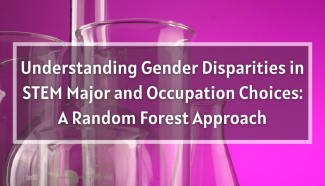
Research Associate Petra Todd co-authors a paper along with Shasha Wang.
Abstract: In the US, women for decades have gone to college at higher rates than men, but they are less likely to choose applied-STEM college majors or occupations. Using the NLSY79 and 97 datasets, this paper assesses the importance of adolescent skills and high school course-taking in explaining gender disparities in four-year college completion, college major, and occupational choice. It considers five cognitive skill areas (math, verbal, science, administrative, and mechanical) and one non-cognitive measure and examines how gender skill gaps evolve over a twenty-year time span. Logistic, CART and nonparametric random forest models are estimated to identify the skill sets, course-taking and family background characteristics that best predict educational and occupational choices. Results show that women are on average on par with men in mathematics skills and exceed men in verbal and noncognitive skills, but they lag behind in mechanical and, to a lesser extent, science skills. Estimates show that a combination of mathematics and mechanical skills along with intensive high school exposure to science and math courses are key predictors of choosing applied-STEM majors and careers. This paper also develops and implements a nonparametric decomposition approach to quantify how eliminating adolescent gender skill disparities would affect women’s and men’s entry into STEM fields.
Todd, Petra E. and Shasha Wang. 2023. “Understanding Gender Disparities in STEM Major and Occupation Choices: A Random Forest Approach.” University of Pennsylvania Population Center Working Paper (PSC/PARC).